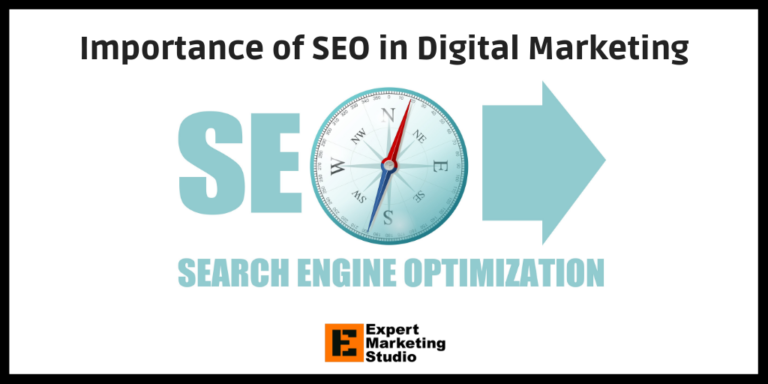The Ultimate Guide to Implementing AI in Your Digital Marketing Strategy
In the fast-paced digital marketing scenario, artificial intelligence (AI) has taken the center stage due to its potential in improving efficiency, personalization, and effectiveness at large. To beat competition, business entities are opting for it as a must-have tool in their e-marketing blueprints. This comprehensive guide will take you through the key steps for AI implementation in digital marketing and show you how to utilize its power.
Understanding AI in Digital Marketing
“Understanding the point of AI is essential before starting to implement it. AI simply entails exploiting sophisticated algorithms as well as machine learning in digital marketing to scrutinize data, predict patterns, perform actions automatically and personalize communications with clients.” Key uses of AI in digital marketing include:
- Predictive Analytics: Analyzing History Data to forecast changing trends and consumer behaviors.
- Chatbots and Virtual Assistants: Automating on engagement and servicing customers.
- Personalization Engines: Delivering personalized suggestions and content to individual users.
- Programmatic Advertising: Automating digital advertising sales and optimization processes.
- Content Creation and Curation: Producing and organizing information guided by data-mining results.
Steps to Implement AI in Your Digital Marketing Strategy
1. Define Your Objectives
To begin, you should specify what you want AI to do for you. Whether you want to make sure that your customers are more engaged with your products, you plan to increase the number of sales, and with advertisements, it is about maximizing their effectiveness. Ensure the right utilization of each dollar spent on advertising, concrete aims are able to walk you through the process of implementing artificial intelligence.
2. Assess Your Data
AI thrives on data. See to it that the data you already have is both of good quality and in adequate amounts that are also enough for making the right decisions by the AI algorithms. Data sources can be such things as client demographics, what people buy or where they buy it from among others.
3. Choose the Right AI Tools
A wide range of AI tools can be found, targeting various elements of online marketing. Some of the most frequently chosen ones are:
- Google Analytics, Adobe Analytics – aimed at Data Analysis
- HubSpot, Salesforce Einstein – aimed at marketing automation
- Drift, Intercom – created for Chatbots/Customer engagement
- Persado, Phrasee – for content creation using AI.
4. Integrate AI with Your Existing Systems
For you to enhance effectiveness, it is important that AI tools that are being used in the marketing platforms are integrated seamlessly with them. You should make sure that the AI solution you choose have the capability of connecting easily with the CRM, email marketing systems as well as other social media sites.
5. Train Your Team
Implementing AI is a complex process that requires collaboration. It may involve setting up training sessions where marketing specialists will be taught about the basics of artificial intelligence and how they can use AI software for effective marketing bliss.
6. Start Small and Scale
Commence by testing the waters through piloting. Take on a specific section of your marketing strategy (for instance email marketing or social media engagement), and implement AI at this small scale. Observe the changes that follow, internalize this idea and later spread the use of artificial intelligence across other domains in a slow pace.
7. Monitor and Optimize
Putting AI in place is a continuous activity. Observe always how well AI propelled undertakings are doing and adjust them through information that is up to date and responses given. Meanwhile, our AI techniques need to be sharpened; so do this through A/B testing, customer feedback or performance metrics.
Best Practices for AI in Digital Marketing
- Data Privacy: Make certain that you comply with laws on data privacy such as the General Data Protection Regulation (GDPR) and California Consumer Privacy Act (CCPA). Keep customer information safe and inform them fully about its use.
- Human Touch: Even as there are so many things artificial intelligence (AI) does automatically, being human-like when possible will always help in creating trust between people which also involves emotional attachment especially where clients are concerned.
- Continuous Learning: Rapidly evolving AI technology means that in order to remain ahead of the curve with your digital marketing strategy, it is essential that you stay current with the most recent trends, tools and techniques.
- Ethical AI Use: Act ethically when using Artificial Intelligence by ensuring that there are no biases present in its algorithms as well as that applications developed for this purpose are consistent not only with business goals but also client desires which should be taken into account before making any decision related to them.
Conclusion
Using Artificial Intelligence (AI) in your marketing campaign can make your way of engaging clients, streamlining operations, and reaching your business targets in a whole different way. If you follow this comprehensive manual, then you will be in a good place to leverage the capabilities that come with AI hence promoting innovation in addition to success throughout your digital marketing endeavours. Use AI technology for the future on marketing; see changes happening in your online business as well.
Happiness in your marketing is happiness with AI in marketing. The best practices such as following these steps will lead you there effectively integrate AI into your digital marketing strategy, hence remaining competitive and innovative amid dynamic scenarios.







